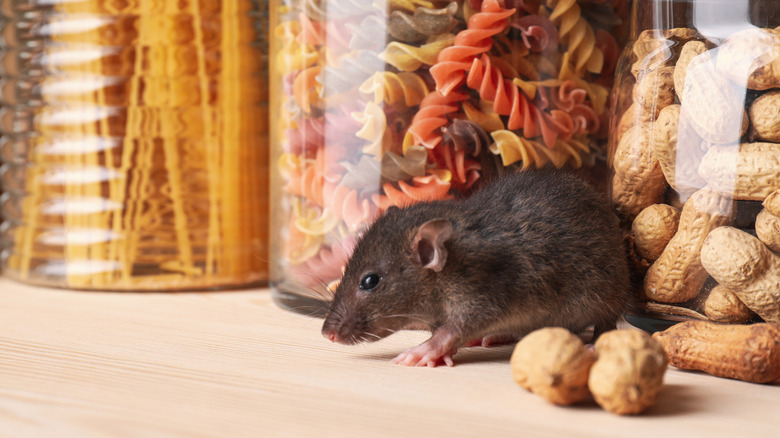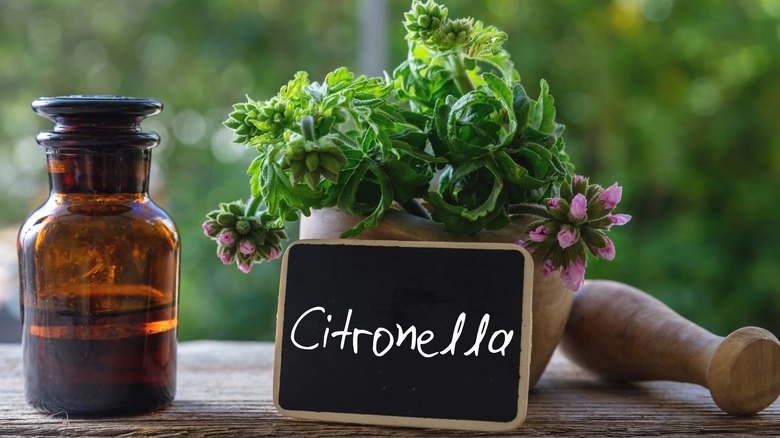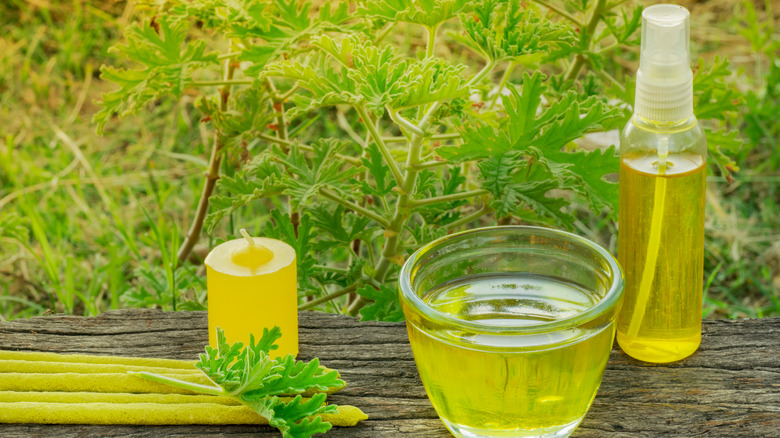A Simple Essential Oil Is All You Need To Combat A Mice Or Rat Infestation
Finding a mouse or rat infestation in your yard, garage, or even your home is never a good thing. These pesky critters seek out places that offer shelter and a food source, but also one that's safe for them. Your goal is to make your home anything but welcoming, and an essential oil — specifically citronella oil, could be all you need to combat this pest infestation.
Citronella has a strong scent, and though it may not seem like an unpleasant smell to you, for pests including mice and rats, it's anything but pleasant. Many animals use scent as a tool to gauge the safety of a location as well as whether there's a food source nearby. When they smell something that's off-putting to them, they move on to the next location.
Citronella oil's strong scent works in this way when used properly. It can start working immediately to deter everything from rodents to deer. It's often best to use this essential oil as a type of prevention tool — if you have a large infestation of mice or rats in your home, though, it's less likely that this lemon-smelling essential oil will be enough to rid the property of the problem quickly. For that, you may need an exterminator, especially since mice and rats can carry disease and reproduce very quickly.
Why citronella is a powerful deterrent for mice
Citronella essential oil is what's often placed in candles for your backyard barbeque to repel mosquitoes. Though some versions contain chemical additives, other forms are organic. No matter which you use, the strong lemon-like scent of this oil will discourage pests from finding your home a welcome place to stay. The sense of smell is a very strong component of a mouse's ability to find food and navigate the world, and when it finds an area with a pungent scent like this, it's likely to move right along.
The scent itself doesn't cause harm to the animal, but its instincts are to move away from something that doesn't smell good in its constant search for food. When such a strong odor is present, it's also much harder for the mouse to find that food, so it continues to move on. Some natural-based pest control products contain citronella in them because it can also be helpful in reducing appetite.
Keep in mind that citronella oil, which comes from the Cymbopogon species of grass, can often be mixed with other oils or chemicals, which can lessen the potency of that smell, limiting its effectiveness at repelling mice. For that reason, when selecting a product to use, look for a pure or more pungent-smelling product to get the best results.
How to combat a rat infestation with citronella oil
Citronella can be used in a dilution with water or mixed with other essential oils to create a repellent for mosquitoes, mice, rats, deer, and other pests around the yard. Other scents, like peppermint oil, cinnamon, and vinegar, can support the effects (which is why some natural rodent recipes call for a combination of these ingredients).
The simplest way to benefit from citronella essential oil is to place a few drops into a spray bottle of water. Aim for 5 drops of essential oil to 8 ounces of water. Then, spritz any area you want to protect or any area where the pests are already living. Be careful about positioning this, as you don't want to encourage mice living outside of your home to move further into it because there's a strong scent blocking their exit.
Another option is to use a citronella candle or essential oil diffuser. You can then place these in areas you wish to protect around the exterior of your home. Just don't leave them unattended if you're not in the area. If there's obvious evidence of mice, create a block for them by mixing several drops of citronella essential oil with a couple of tablespoons of baking soda. This should create a thick paste you can spread along areas you want to block off from their infestation. Often, a combination of these methods can work as a natural deterrent for mice.


